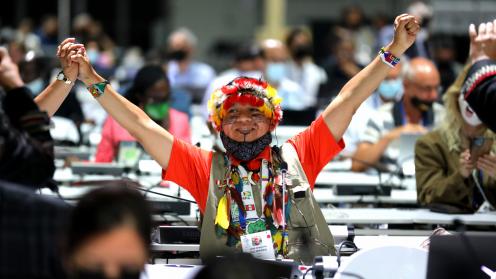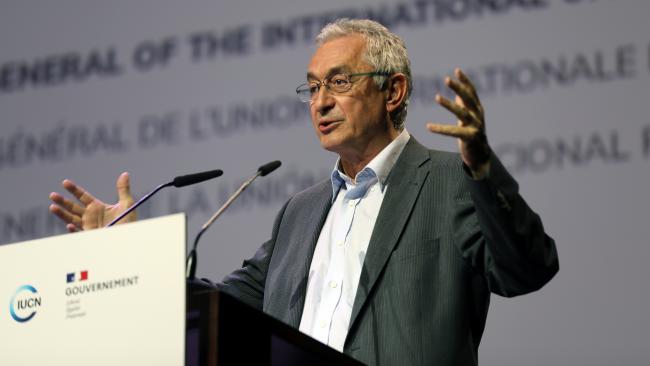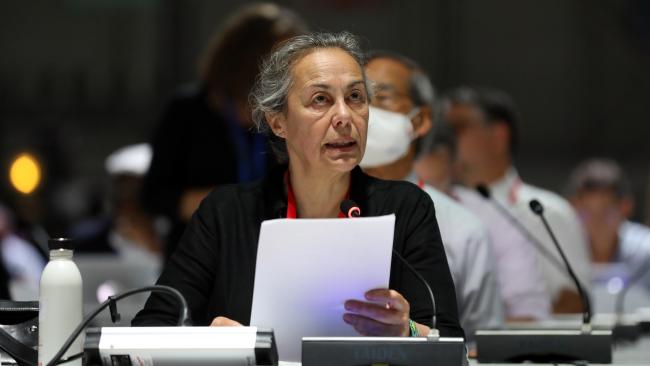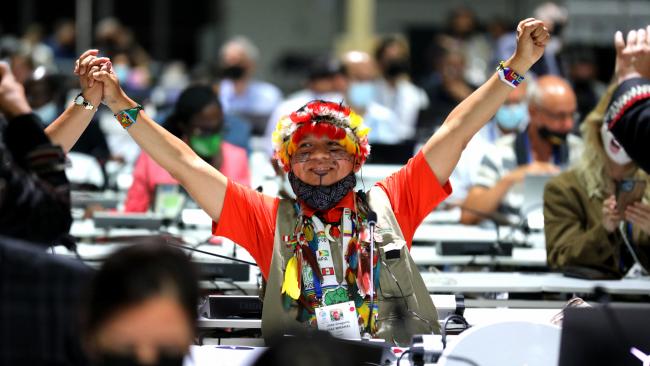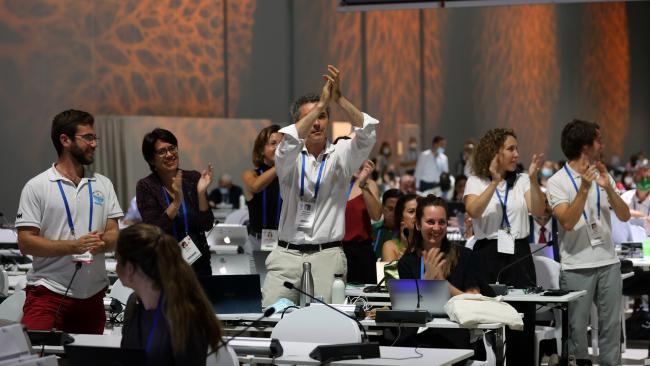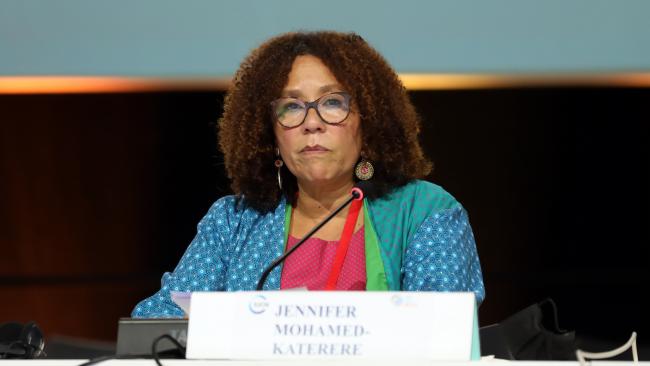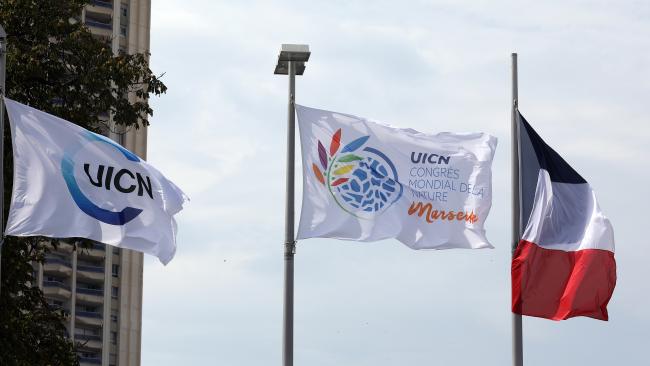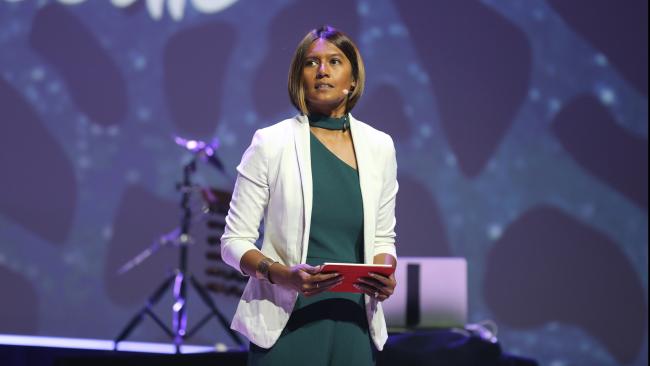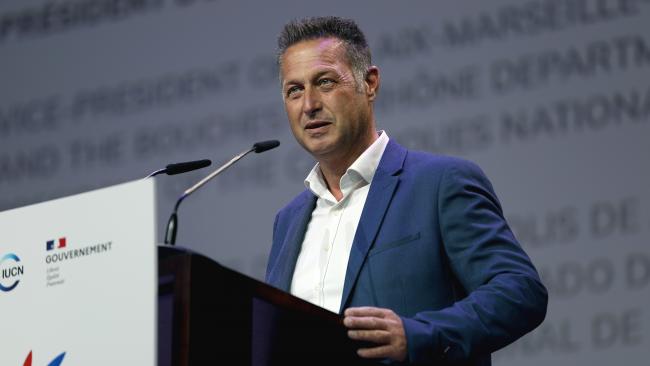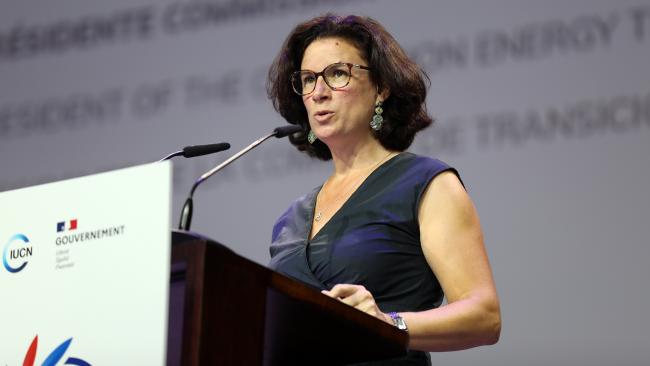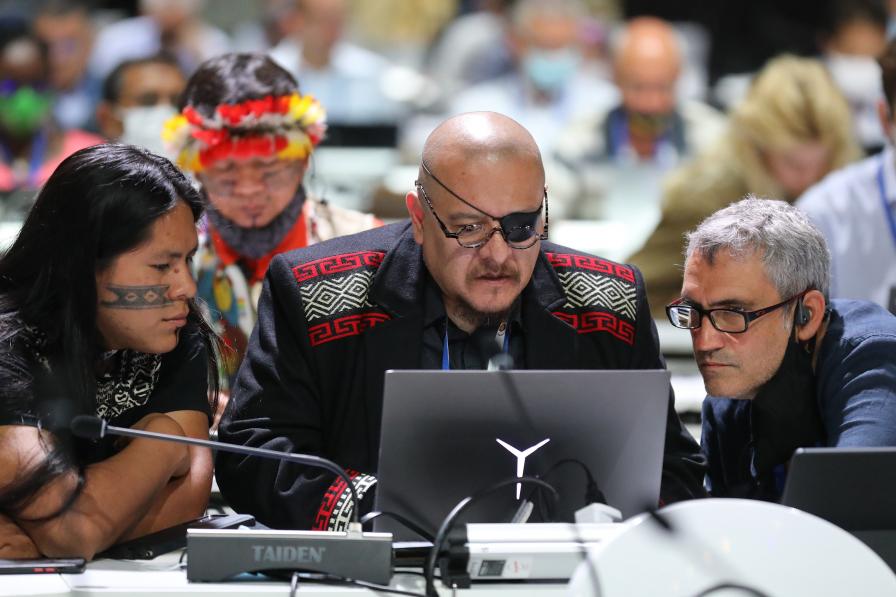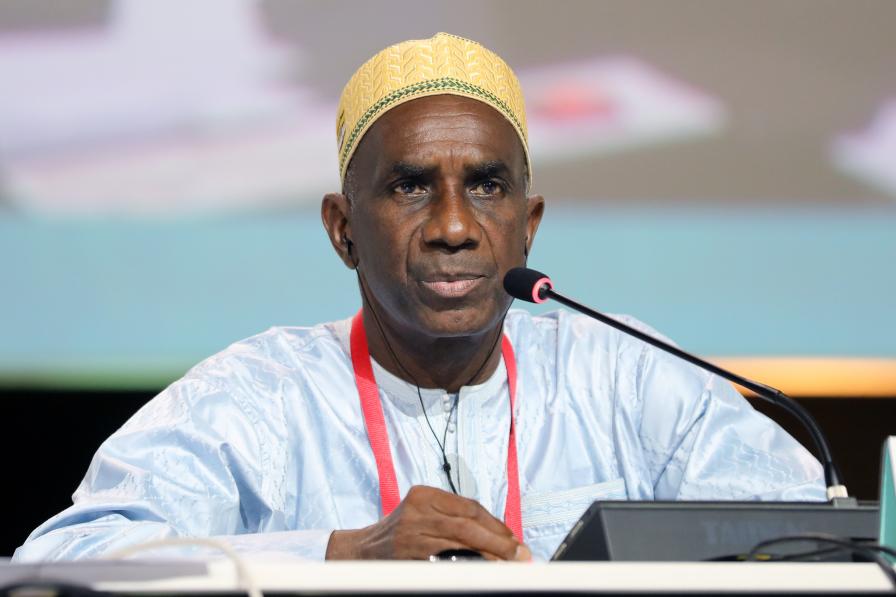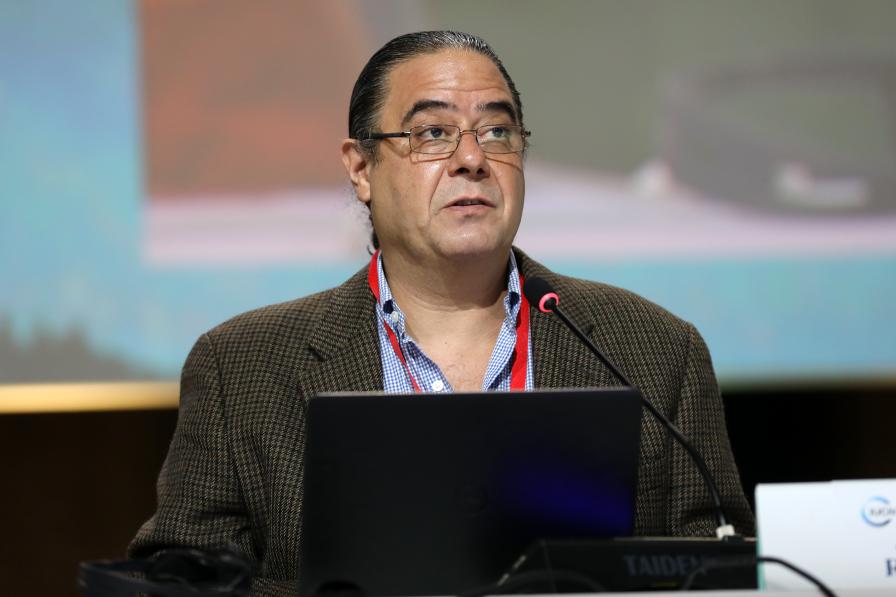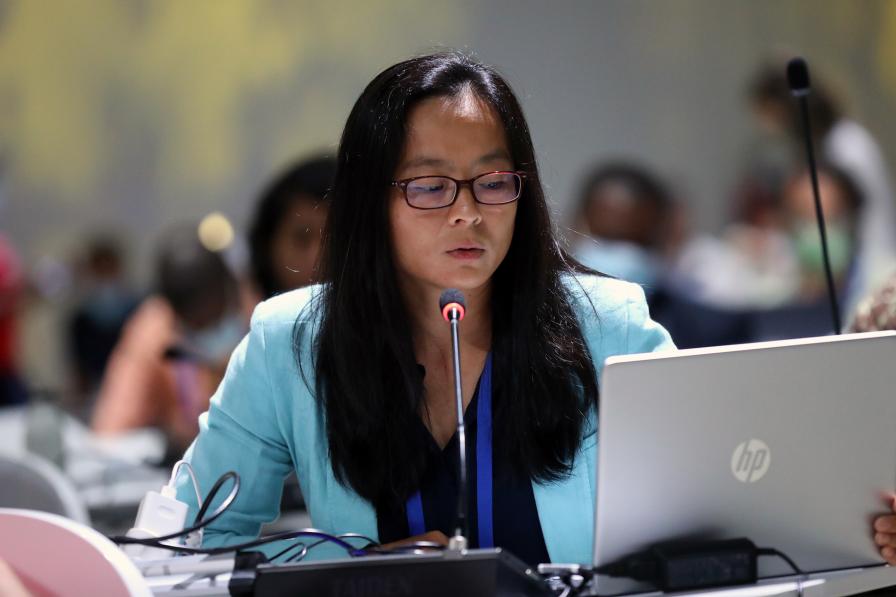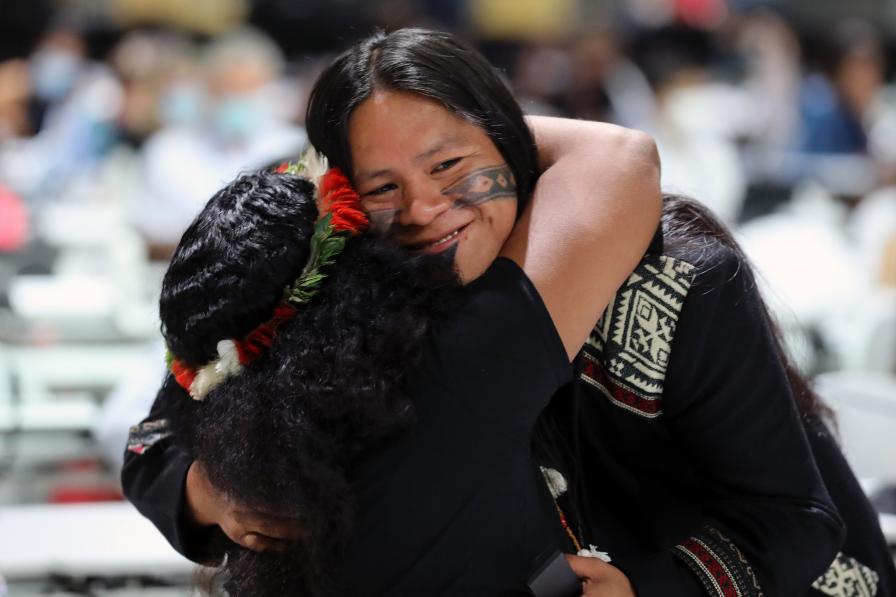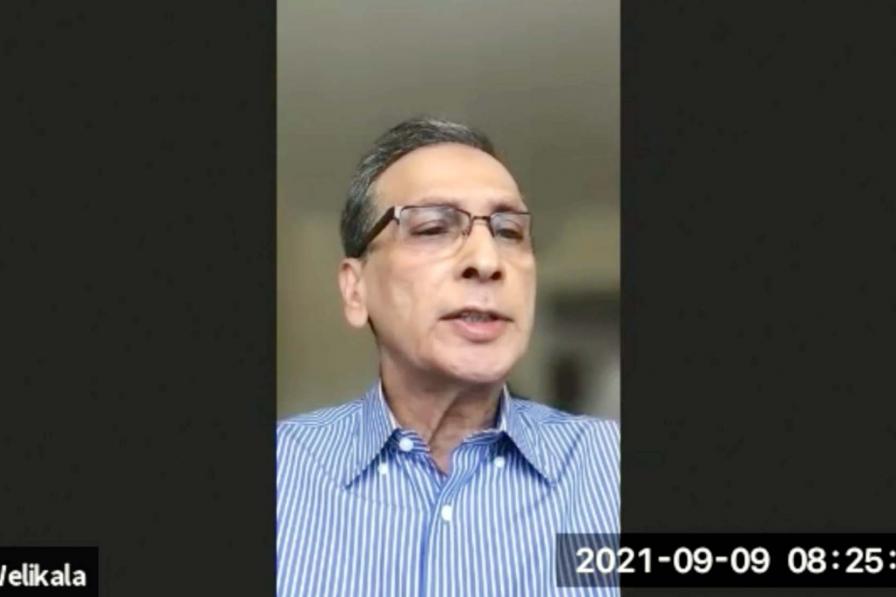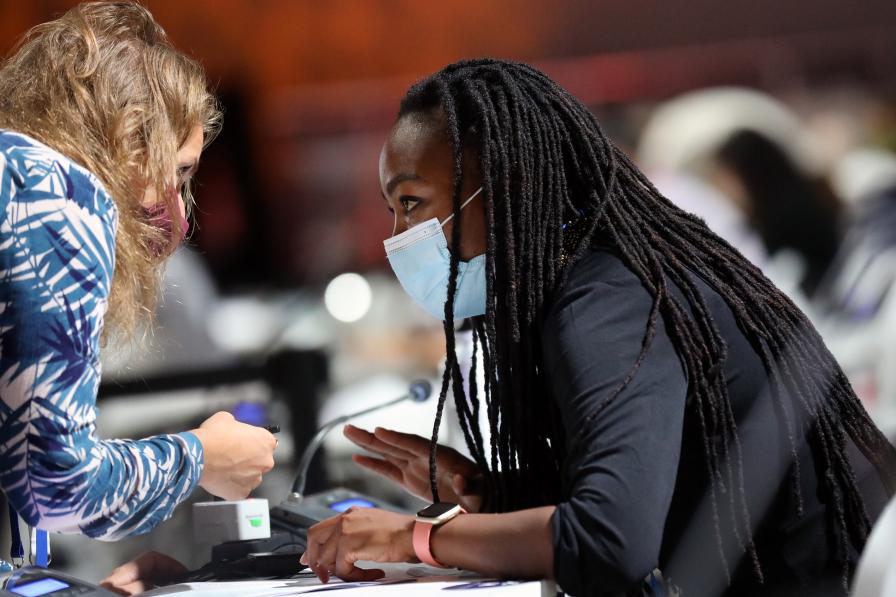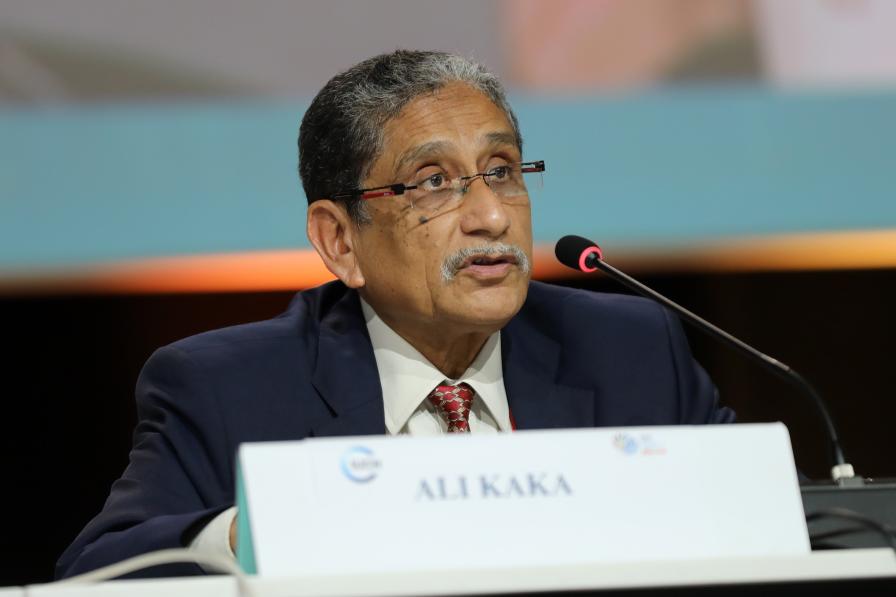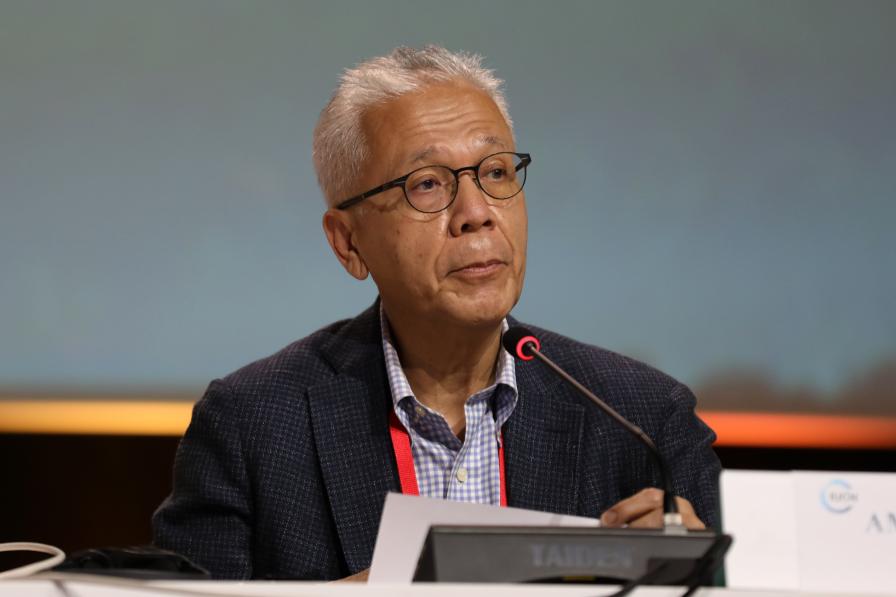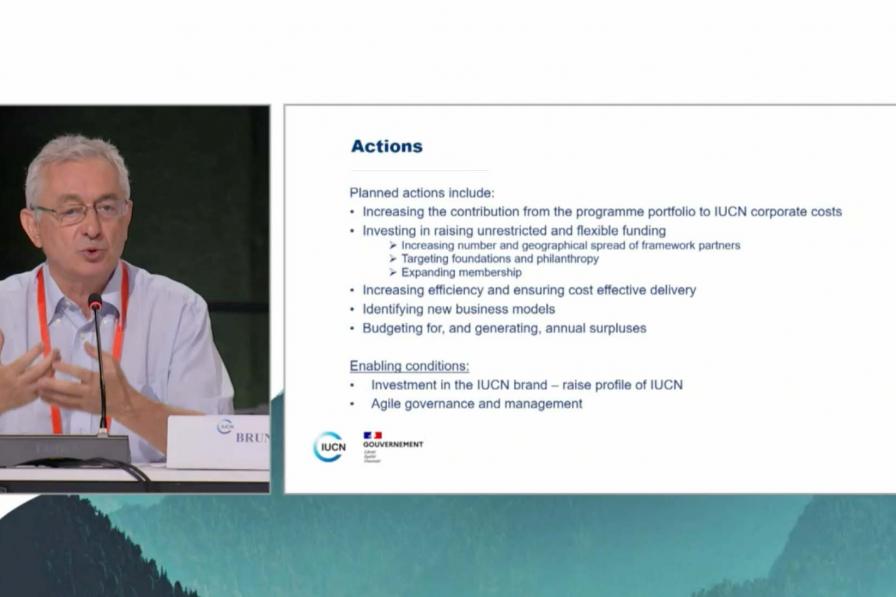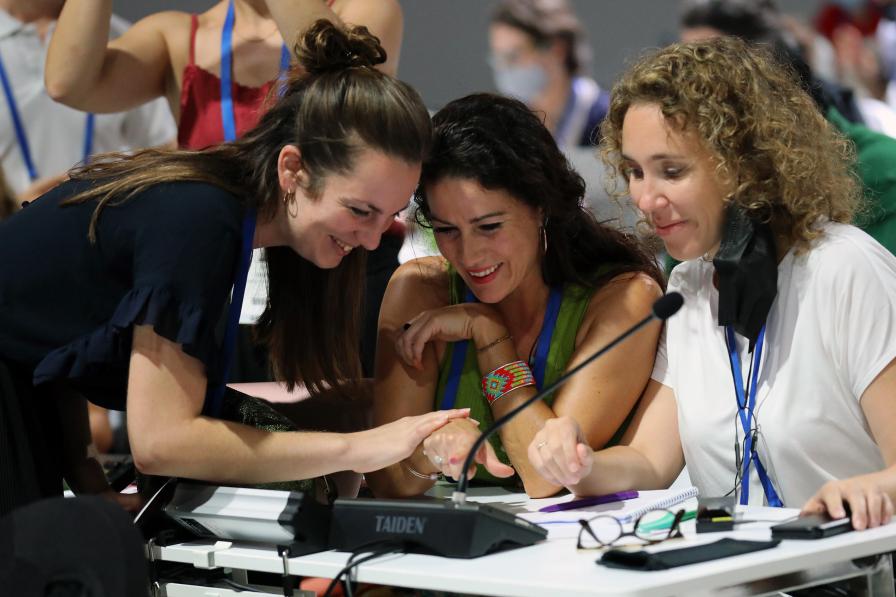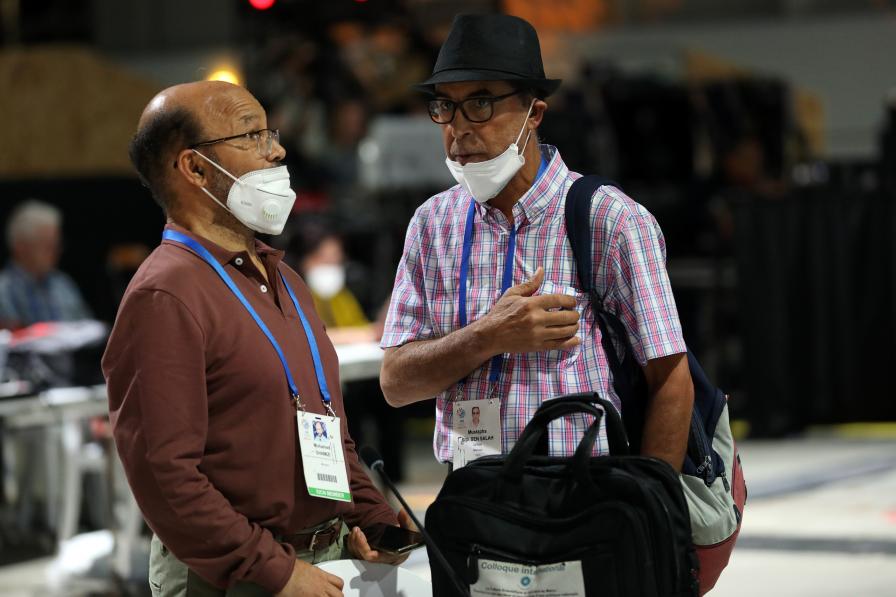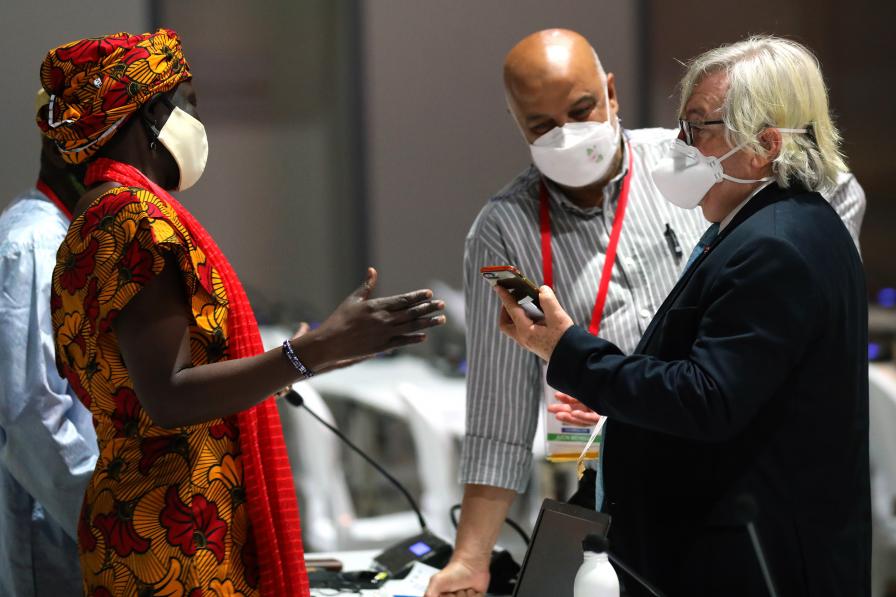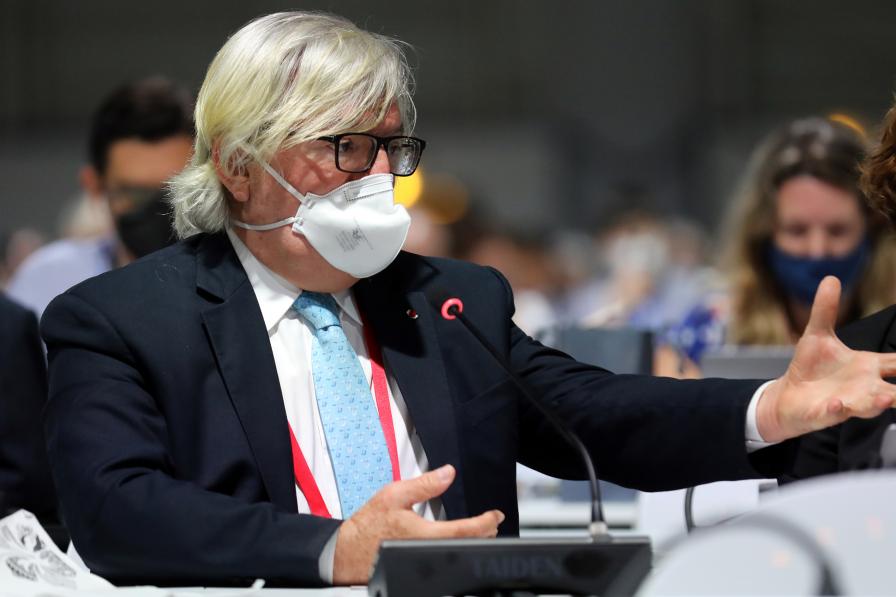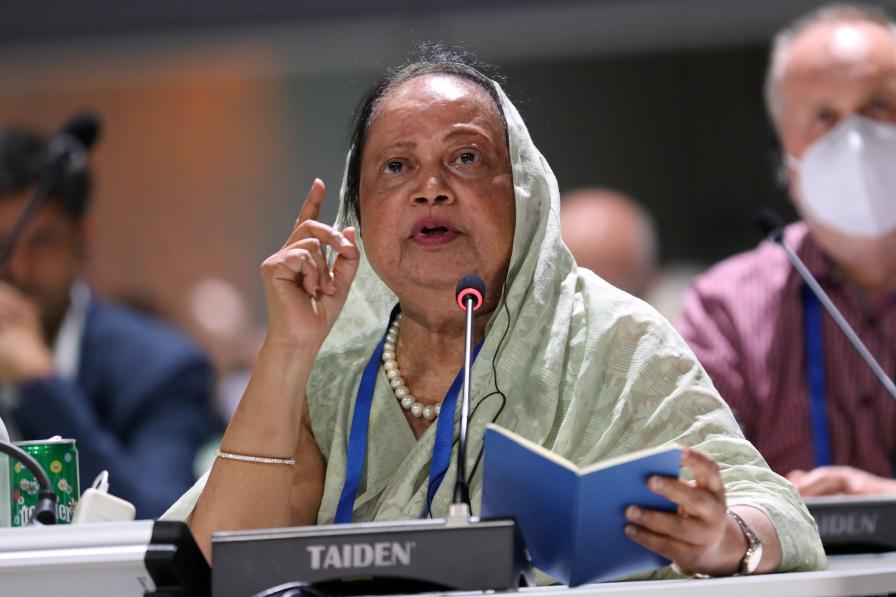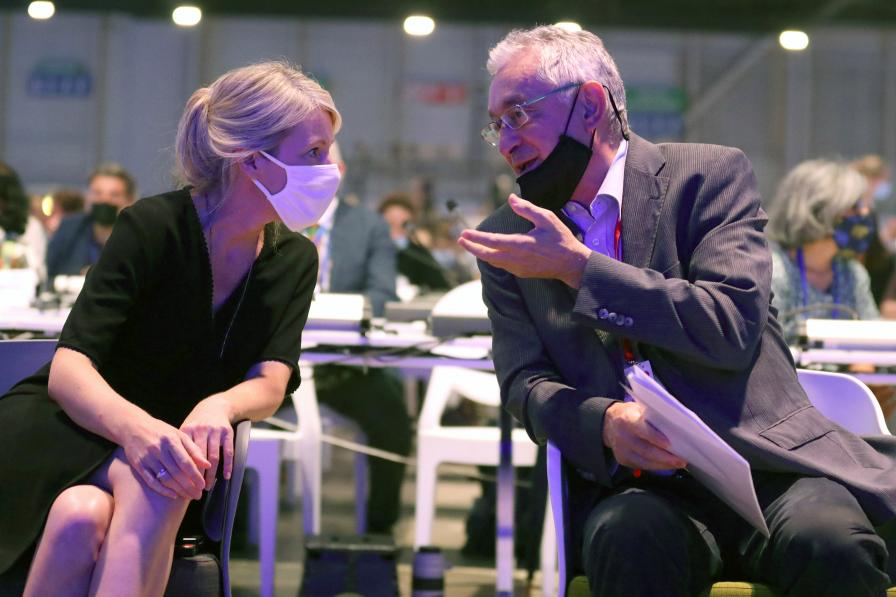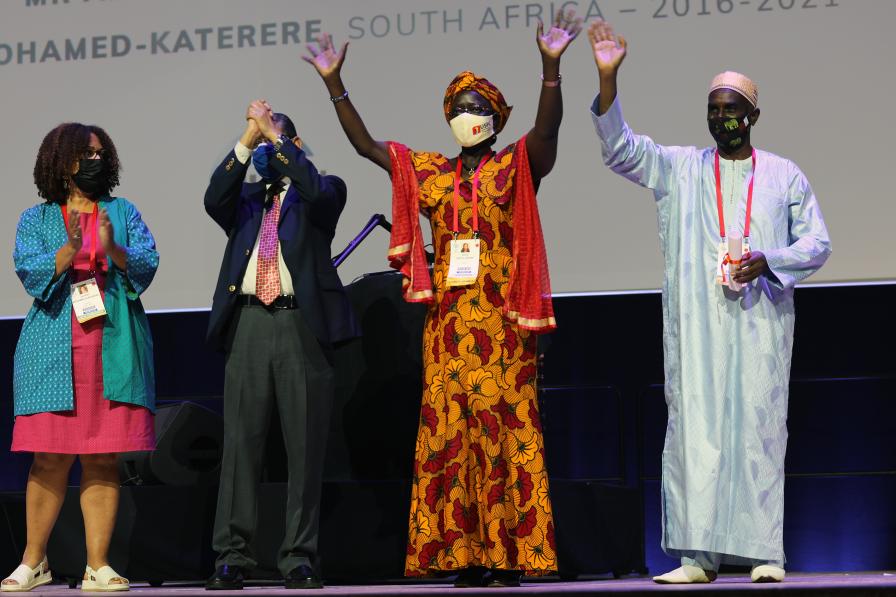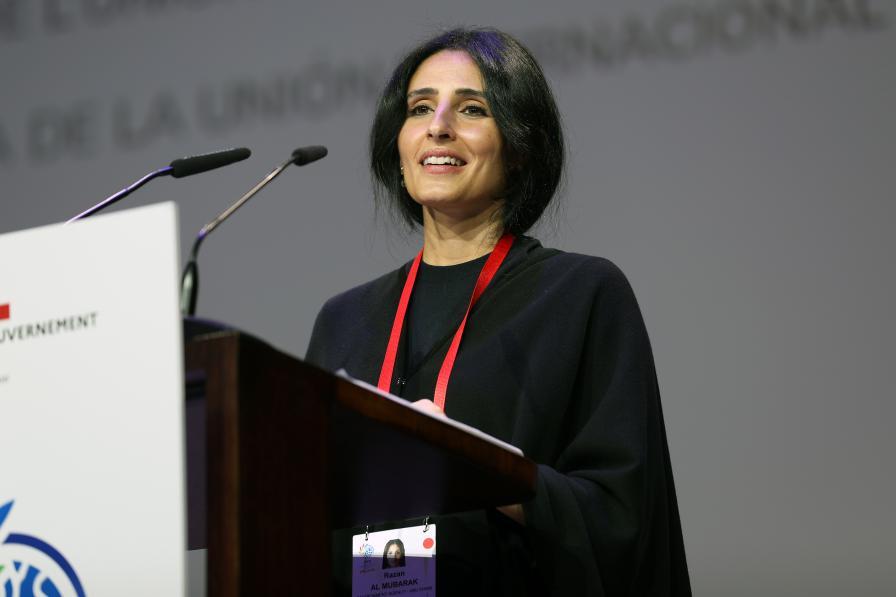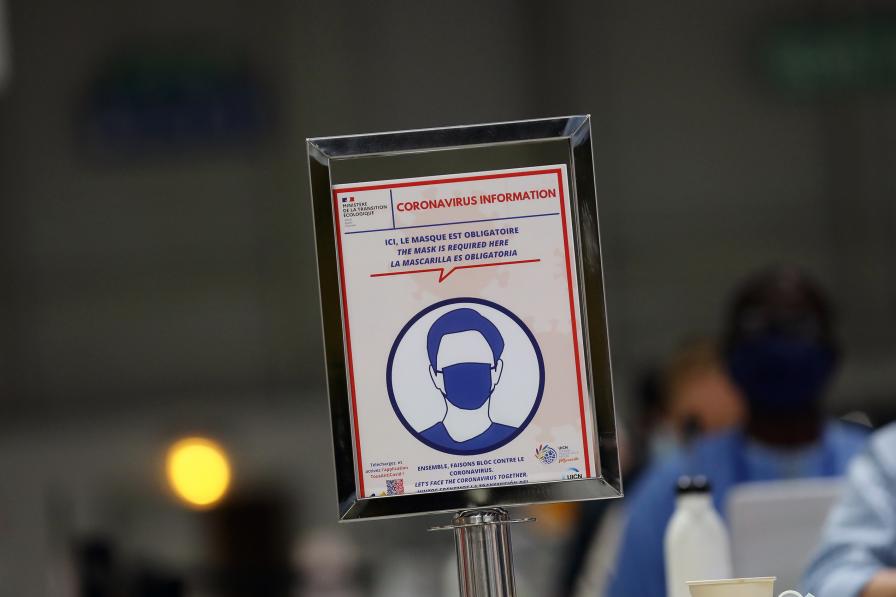On the final day of the Congress, Members approved 14 motions and four governance motions. They further: agreed on the Marseille Manifesto, the Congress’s main outcome document; listened to reports on IUCN finances; and engaged in a strategic discussion on developing a comprehensive gender approach at IUCN. A vibrant closing ceremony conveyed the message that time for environmental action is now.
IUCN President Zhang Xinsheng, responding to questions on his report to the Assembly, said IUCN focuses on the Global South, because while the South hosts the majority of key biodiversity areas, it remains fragile, with most countries lacking significant financial resources and capacity.
Finances of IUCN
IUCN Director General Bruno Oberle updated the Assembly on: the financial results from 2016-2020; projects for 2021-2024; and key challenges, opportunities, and actions. He noted lower income in 2020 compared to 2016-2019, primarily because of the pandemic, and also highlighted reduced operational expenditure, for the same reason.
Developing a Comprehensive Gender Approach at IUCN
Jenny Gruenberger, IUCN Council, presented this strategic discussion, which included results of a survey conducted by the Council Gender Task Force on the improvement of gender-responsive approaches and its recommendations. She said the Task Force recommends, inter alia, that IUCN set up a Gender Strategy and Action Plan for gender mainstreaming, and revise the number or rotating the majority of regional Councillors. Following a vote, the Members’ Assembly approved the IUCN gender approach.
Motions
Members approved motions on:
- Recognizing and supporting Indigenous Peoples and local communities’ (IPLCs) rights and roles in conservation;
- Towards a policy on natural capital;
- Acting for the conservation and sustainable use of marine biological diversity in the ocean beyond national jurisdiction;
- Avoiding the point of no return in the Amazon protecting 80% by 2025;
- Restoring a peaceful and quiet ocean;
- Reducing the impacts of the mining industry on biodiversity;
- Setting area-based conservation targets based on evidence of what nature and people need to thrive;
- Affirming the right of IPLCs to sustainably manage and utilize wild resources in the context of COVID-19;
- Establishing a Climate Change Commission;
- Developing and implementing a transformational and effective post-2020 global biodiversity framework;
- Towards development of an IUCN policy on synthetic biology in relation to nature conservation;
- Protecting the Lower Congo River from large hydro-electric dam developments;
- Integrated solutions to the climate change and biodiversity crises; and
- Protecting human, animal, and environmental health, and preventing pandemics through the One Health approach and by addressing the drivers of biodiversity loss.
Governance Motions
Members approved governance motions on:
- Including subnational governments in IUCN’s membership;
- Election of Regional Councillors resident in dependent territories;
- Development of a new 20-year Strategic Vision, inclusive of a Financial Strategy, and Strategic Plan for the Union; and
- Enabling effective attendance and participation of Members in future sessions of the World Conservation Congress.
Marseille Manifesto
Jennifer Mohamed-Katerere, IUCN Council, emphasized the Manifesto’s explicit purpose to communicate the conclusions and commitments from the Congress, noting it was not intended to be a policy statement. She remarked that it was developed in an inclusive manner in consultation with Members and with the Friends of the Chair Committee. Members welcomed the Marseille Manifesto by acclamation.
Closing Ceremony
Moderator Asha Sumputh, journalist, highlighted several achievements, such as four tuna species showing signs of recovery thanks to national action.
Bérangère Abba, Secretary of State for Biodiversity, France, lamented the lack of progress on the 2020 biodiversity targets, saying around 30% of species are threatened with extinction. Noting the room for progress is huge, she added that France will take up this global challenge.
IUCN Director General Bruno Oberle noted that the IUCN Congress is a unique environmental global parliament where all stakeholders have a voice. He said decisions taken here will drive action to tackle the biodiversity and climate crises in the crucial decades to come.
Razan Al Mubarak, IUCN President-Elect, underlined the need for the Council to be visionary, and to take strong, bold, and ambitious steps to protect nature. She urged those present to fight for nature for its intrinsic value, not just for what it does for humanity. She closed, calling on the conservation community to progress its mission with the sense of urgency that nature demands.
Benoît Payan, Mayor of Marseille, highlighted that local action is a powerful lever and cities can no longer be ignored in the fight against climate change. He welcomed the historic decision adopted in Marseille to include subnational governments as Members of the Union. He ended with a clear message that he conveyed in French, Spanish, and English, from Marseille to the delegates of CBD COP15 in Kunming: “Hear us, get involved, the world is watching.”
Didier Réault, Vice President, Aix-Marseille-Provence Metropole, expressed satisfaction with the Congress’s resounding success and highlighted successful local biodiversity conservation solutions.
Anne Claudius-Petit, President of the Energy Transition, Waste Strategy, Air Quality Commission, Bouches-Du-Rhone Region, France, highlighted her region’s upcoming work toward a Zero Plastic Mediterranean, the new full membership status of subnational representatives in IUCN, and a partnership with Costa Rica to promote increased protection of marine areas.
Outgoing IUCN President Zhang Xinsheng said the Congress is a true milestone for a future era of ecological civilization. The Congress, he said, has turned the pandemic and nature crisis into opportunities for transformational change. He lauded IUCN for achieving a successful meeting that recognizes the importance of partnership and the need to achieve integrated action for the biodiversity and climate change crises.
President Zhang declared the Congress closed at 22:03 CET, calling delegates to “forge ahead in action, action, action!”
